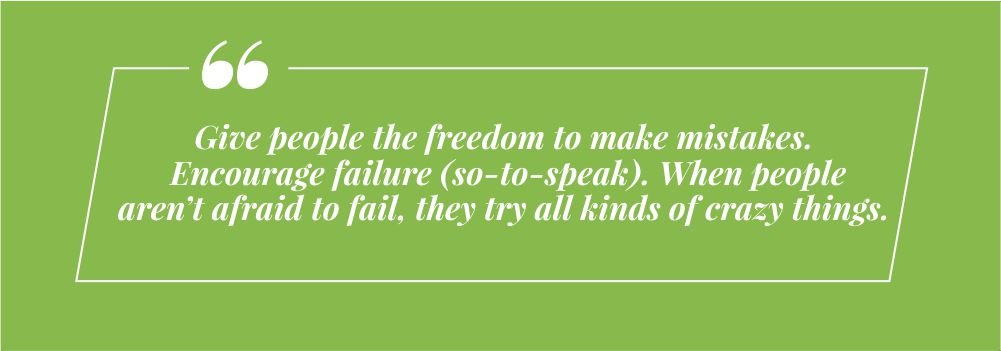Being a successful leader is no easy task in today’s dynamically changing world. Modern leaders should be aware of the changing technology trends, be creative, and think outside the box. Besides this, the most important role of a leader is to build a strong team. Hiring people who share the same values, giving them the freedom to make mistakes, encouraging them to innovate, and putting them in a position to win are the exclusive qualities that distinguish successful leaders from ordinary ones.
Jeff LoCastro is a prime example of a leader—possessing the aforementioned qualities—thriving in the rigorously competitive business environment. He is a serial entrepreneur, innovator, and one of the most decorated business leaders around. Presently, Jeff spearheads Neener Analytics. As the Founder and CEO of the company, he has been instrumental in its growth since its inception.
The team of Mirror Review recently had the opportunity to interview Jeff, in which he sheds light upon leadership, entrepreneurialism, and the effect on the marketplace after the COVID-19 pandemic. Here are some snippets from the intriguing conversation.
What are the factors that distinguish Neener Analytics from its peers?
Neener was officially launched in 2019 with our first Finovate Best of Show win. We are conversational AI for financial risk decisioning using Textual, conversational, and cognitive AI. We have pioneered the concept of Human-based data. Other companies exploring it previously had used big-data modeling and achieved limited success.
Our idea was always to ‘humanize’ the human data and only use data that is unique and individual to a specific human being throughout the decision chain. Human data science is the idea of using data owned, controlled, and created by the human individual which tells the story. In this process, data that every human being on the planet possesses—in different ratios—is used. Historical transactions or relations data is not included. Our products do not provide a score based on past events, they predict the future.
What are your primary responsibilities as a leader? Also, please mention some notable feats from your entrepreneurial journey.
Since we are a start-up, I manage multiple roles and responsibilities. Thus, on any given day, I wear the hats of Finance, Bookkeeper, Controller, HR, Strategy, Governance, Product Development, Business Development, Sales, Press Agent, Lawyer, Fund Raiser, Chief Negotiator, Tea Maker, Soothsayer, Evangelist, and Fortune Teller.
One of the best pieces of advice I ever got was “to be constantly ready to switch gears.” Constantly switching gears—trying to move seamlessly from one discipline to the other, and then back again—is a thrill every day. And I don’t know how to do anything else except build stuff. As a serial entrepreneur, I always think my greatest achievements are ideation and creation of the dream; seeing others buying into my dream, believing in my dream, and working alongside me to make it real; and also the customers buying into my dream and paying for it.
How has leadership changed over the years? Also, how did the COVID-19 outbreak impact you as a leader?
I believe that leadership has not changed much over the years—except to the extent that good leadership today puts more trust in autonomous teams to execute certain strategic initiatives. The COVID-19 pandemic had no impact on how I lead and the fundamental principles of good leadership. We already had the tools to monitor the progress of autonomous teams. However, in the marketplace, the pandemic exposed poor leaders as it required a shift to virtual work environments. Bad leaders hire bad people and bad people take the advantage of a virtual environment.
What were the impacts of the pandemic on the industry and the company?
2020 was a difficult year indeed for everyone. Being in a B2B business focused on the risk-rail for lenders, it was more difficult for us. Beginning about May/June 2020, we had lenders who literally stopped lending. Some of them who were used to doing 10,000-15,000 per month were suddenly doing 30-50 applications per month. I could sense approximately in November last year that they were itching to get everything ramped back up. That ramping started in January/February and has been steadily increasing ever since. Not quite yet at the April 2020 level, but it is getting there.
What are the key focus areas for Neener Analytics in the upcoming years?
In the near future, we are looking at how to predict loyalty. Not loyalty as a marketing concept, but loyalty as a psychological one. It will not be based on who will be attracted to one offer over another, but rather understanding the long-term value potential of a unique individual customer at the point of engagement. This concept is especially important with Gen Y and Gen Z consumers who are easily distracted by all the shiny objects in the marketplace. The early testing on this has been promising.
What would be your piece of advice to the entrepreneurs aspiring to thrive in the industry?
Believe in your vision. That doesn’t mean you are not flexible and can’t course-correct. It means, that if you cannot almost ‘see’ the place you want to go, don’t start out on the road. The life of an entrepreneur is hard, it’s lonely, it’s a roller-coaster, and a daily battle of will. Moreover, if you have a partner (husband, wife, girlfriend, boyfriend) at home, make sure they are fully committed to the journey they are about to embark on. One of the top causes of failure is home-front pressure; a loved one not understanding that it is a 24/7 endeavor. It’s not a job, it’s a passion. Jeff Recommends: Biographies of successful and famous people in any industry—preferably biographies depicting stories—whose end—you are already familiar with.

Read Full Magazine:- The 10 Pioneering Business Leaders, 2021





